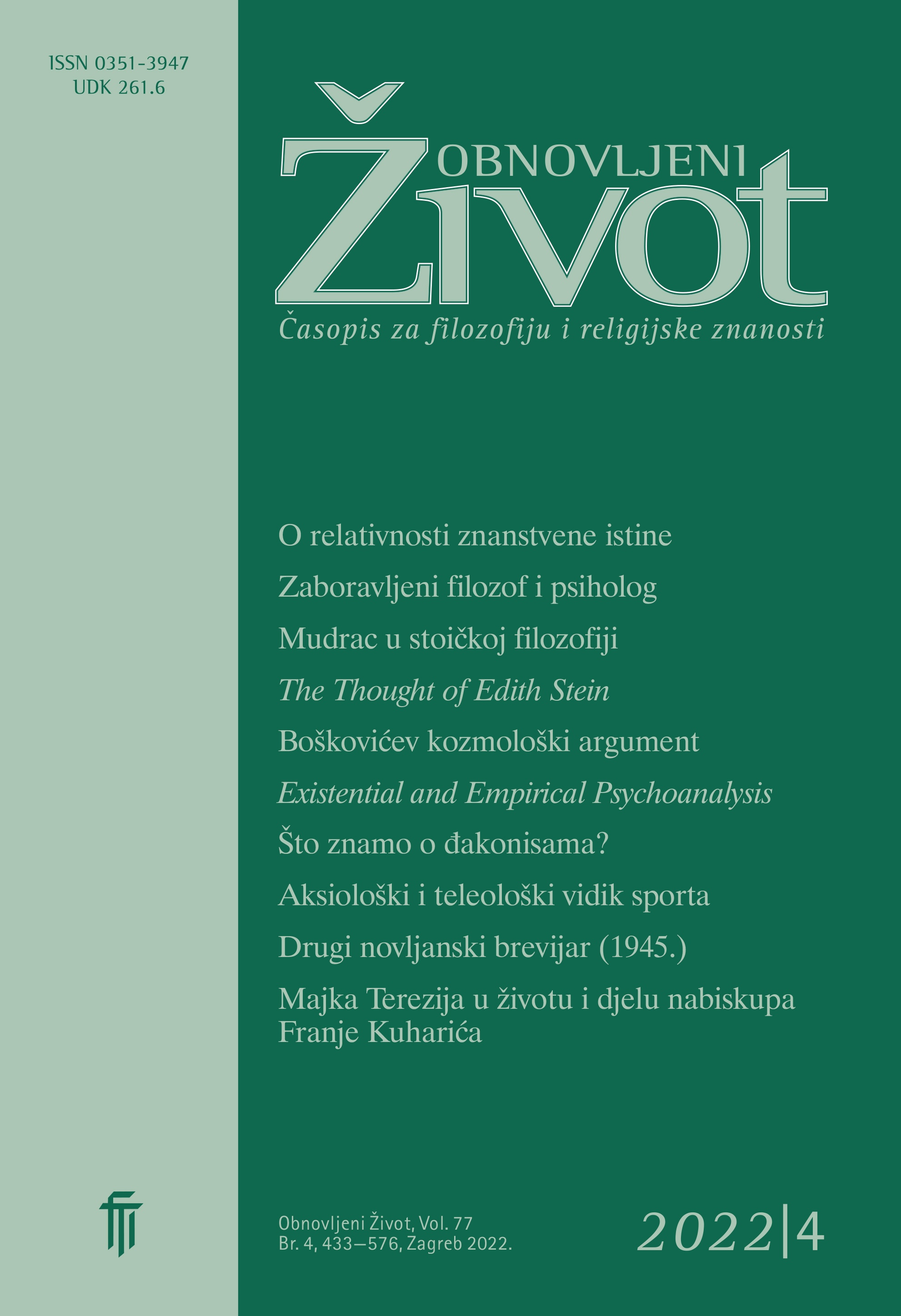The Sage in Stoic Philosophy
Keywords:
sage, Stoics, emotions, feelings, cognition, happiness, virtue, knowledge, wisdomAbstract
The Stoics describe the sage as being the only one to possess both knowledge and skill: the only one to be fully rational, virtuous, and happy and, finally, to be a person without passion, but rather with eupatheiai, or “good feelings.” The author argues that the notion of the sage cannot be neglected or eliminated from the Stoic system of philosophy, nor can it be seen as an addition to it. The sage is a necessary consequence of central Stoic philosophical tenets — a construction that keeps together the parts that comprise the whole of Stoic philosophy. The only way to avoid scepticism in any area and to affirm the existence of knowledge, virtue, happiness, etc., is to postulate a person who is their true possessor.
Downloads
Published
Issue
Section
License
Jednom prihvaćeni članak obvezuje autora da ga ne smije objaviti drugdje bez dozvole uredništva, a i tada samo uz bilješku da je objavljen prvi put u Obnovljenom životu. Uredništvo će obavijestiti autora o prihvaćanju ili neprihvaćanju članka za objavljivanje.
Članci objavljeni u časopisu se, uz prikladno navođenje izvora, smiju besplatno koristiti u obrazovne i druge nekomercijalne svrhe.


